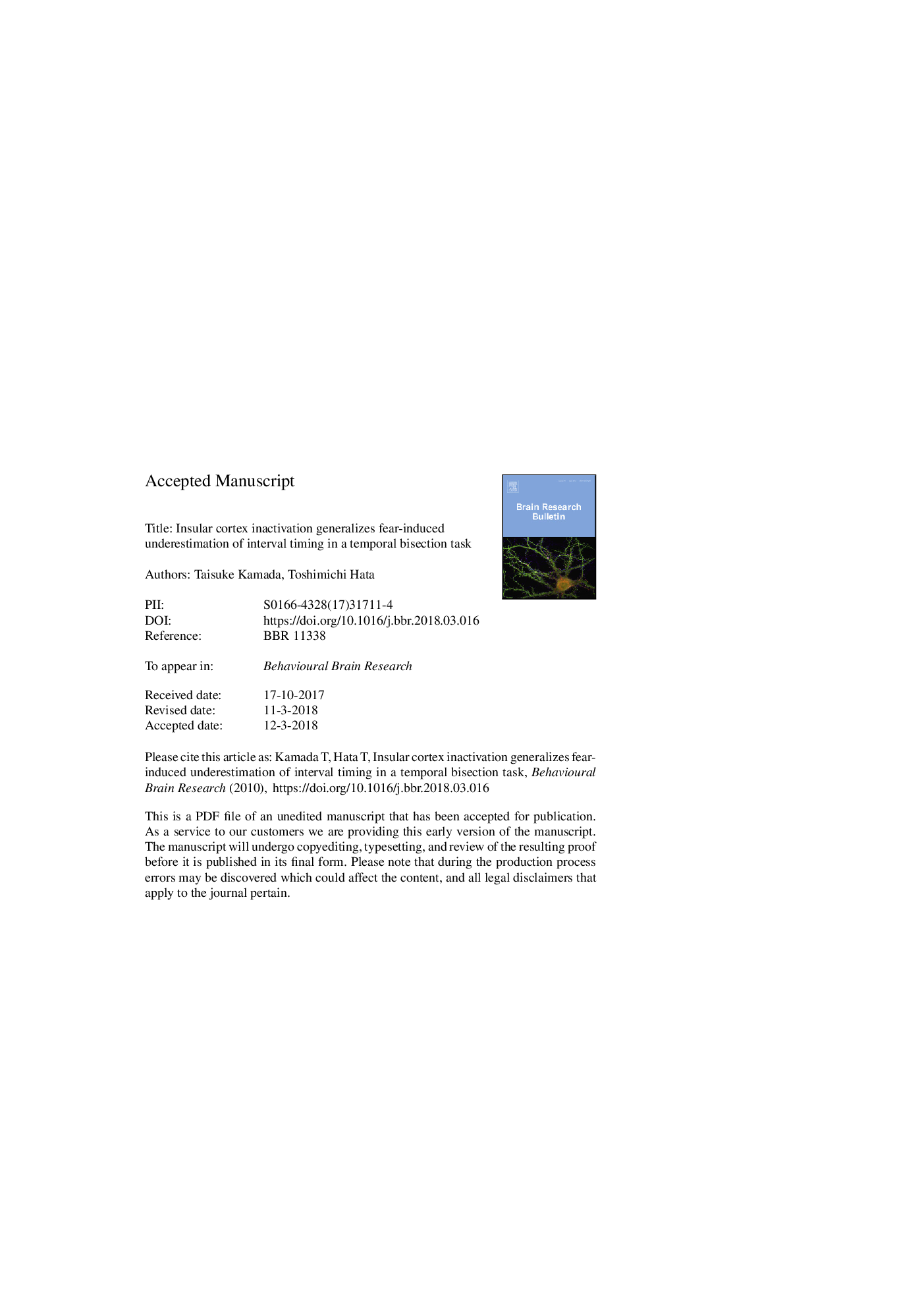| کد مقاله | کد نشریه | سال انتشار | مقاله انگلیسی | نسخه تمام متن |
|---|---|---|---|---|
| 8837788 | 1612888 | 2018 | 36 صفحه PDF | دانلود رایگان |
عنوان انگلیسی مقاله ISI
Insular cortex inactivation generalizes fear-induced underestimation of interval timing in a temporal bisection task
ترجمه فارسی عنوان
غیرفعال کردن قشر ساحلی عموما باعث کم توجهی ناشی از ترس به زمانبندی فاصله در یک کار بیساوی زمانی می شود
دانلود مقاله + سفارش ترجمه
دانلود مقاله ISI انگلیسی
رایگان برای ایرانیان
کلمات کلیدی
زمان بندی فاصله، تهدید ترس، قشر ساحلی، وظیفه زمان باریک،
موضوعات مرتبط
علوم زیستی و بیوفناوری
علم عصب شناسی
علوم اعصاب رفتاری
چکیده انگلیسی
In this study, we investigated: (1) the effect of fear on interval timing-time perception in the seconds-to-minutes range-and (2) the role of the insular cortex in the modulation of this effect. Rats were first trained on a temporal bisection task in which their response to a lever A was reinforced following a 2.00-s tone, whereas their response to a lever B was reinforced following an 8.00-s tone. After acquisition, the rats were also presented with intermediate-duration tones and pressed one of two levers to indicate whether tone duration was closer to 2.00 or 8.00s. Subsequently, the rats underwent differential fear conditioning in which one pitch tone (conditioned stimulus; CS+) was paired with an electric foot shock, while the other pitch tone (CSâ) was presented alone. Either artificial cerebrospinal fluid (aCSF) or the GABAA agonist muscimol was then infused into the rats' bilateral insular cortex before the animals were tested on the bisection task using the CS+and CSâ tones. We found that in the rats infused with aCSF, the point of subjective equality (PSE) of the CS+ was higher than that for CSâ, suggesting that the duration for CS+ was perceived to be shorter than that of CSâ. However, muscimol eliminated the difference in PSE between CS+ and CSâ by generalizing of the effect from CS+to the CSâ. Taken together, our results show that normal activity in the insular cortex is involved in fear-induced modulation of interval timing.
ناشر
Database: Elsevier - ScienceDirect (ساینس دایرکت)
Journal: Behavioural Brain Research - Volume 347, 16 July 2018, Pages 219-226
Journal: Behavioural Brain Research - Volume 347, 16 July 2018, Pages 219-226
نویسندگان
Taisuke Kamada, Toshimichi Hata,
